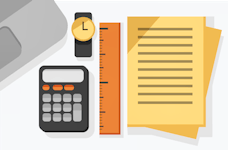The 15fq+ Test (2025 Guide)
All products and services featured are independently selected by WikiJob. When you register or purchase through links on this page, we may earn a commission.
- What Is a 15fq+ Test?
- Who Is the 15fq+ Test For?
- What Does the 15fq+ Test Measure?
empty
empty
- What Does a 15fq+ Test Tell You?
empty
- How Is the 15fq+ Scored?
empty
empty
empty
empty
empty
- How to Pass the 15fq+ Test in 2025
- Final Thoughts
What Is a 15fq+ Test?
The 15fq+ or Fifteen Factor Question Plus test is a personality test that employs 15 of the 16 key personality traits described by Raymond B. Cattrell in 1946.
It also uses modern psychodynamic discoveries to create a personality profile.
The original 16 Personality Factor Questionnaire gave an entire overview of a personality, while the 15fq+ can identify the fundamental basics of an individual's personality, specifically regarding work and work environment.
The test was first devised as the 15fq in 1992. It has since been subjected to various revisions to reflect recent updates in technology.
The present version (15fq+) tries to avoid all cultural or gender bias while maximizing reliability.
It is available in both the standard long version (200 questions) and a shorter test (100 questions), with both computerized and handwritten options to choose from.
There are a variety of language options available.
The test does not take long to complete, despite a large number of questions. Most people finish it in about 30 minutes.
Who Is the 15fq+ Test For?
There are many reasons why you could be asked to complete the 15fq+ questionnaire, often by recruiters as part of their interview process.
This form of testing allows employers to quickly assess whether your personality and natural habits will benefit a company.
It also helps to show key areas of skill and aptitude, which may be considered positive attributes.
It is not just recruiters and employers who use the 15fq+ test. Some schools and universities offer the test as part of their career advice to help you to decide if you suit your chosen career path.
Anyone can take the 15fq+ test, and many psychologists offer testing.
What Does the 15fq+ Test Measure?
The 15fq+ test measures the strength of personality traits on a sliding scale.
Everybody possesses elements of all the traits as part of their personality; however, some will be more dominant than others.
The test will evaluate which elements are the strongest.
The 15fq+ is divided into three sections:
- First, it analyzes the 15 key personality traits identified in the original 15fq test
- Second, it measures five global factors
- Finally, it considers factors specific to an occupation
The 15 Key Personality Traits
This section of the 15fq+ questionnaire will measure traits such as:
- Compassion
- Confidence
- Self-motivation
- Intelligence
- Enthusiasm
- Whether you are group motivated
- Trustworthiness
Global Traits
The five global traits are considered part of the 15fq+ and are measured on a scale.
Scores are then calculated and indicate a tendency towards one side over the other.
The traits at either end of the scale are described below:
- Extraversion – Requires significant social contact and experience of the outside world. Enjoys public events and activities.
- Introversion – Does not require very much social contact at all. Unlikely to enjoy outside events and activities.
- Low Anxiety – Likely to be resilient and able to cope with high-stress situations. Often calm and well-adjusted.
- High Anxiety – Does not cope well with unexpected or high-stress situations. Likely to be sensitive and prone to mood swings.
- Pragmatism – Influenced by cold, hard facts; rather than the world around them. Less open to new ideas and can appear insensitive to alternative possibilities.
- Openness – Influenced by thoughts and feelings rather than facts. More likely to be open to new ideas and possibilities.
- Independence – Self-aware, certain of their own thoughts and actions. More likely to be stubborn and opinionated.
- Agreeableness – Tolerant, obliging and keen to help. Unlikely to be strong-willed and more likely to be willing to compromise.
- Low Self-Control – Displays low levels of self-restraint and control. Uninhibited by societal norms and expectations.
- High Self-Control – Very restrained, capable of remaining in control in most situations. Very aware of societal norms and expectations.
What Does a 15fq+ Test Tell You?
The test is specifically designed to measure 15 of the 16 key personality traits which we all hold. This gives information regarding how we see the world, how we think, and how we feel about things.
This can offer an employer significant insight when deciding the qualities that would most benefit their company.
Things That the 15fq+ Questionnaire Can Show:
- Are you culturally aware and sensitive of those around you?
- Are you easily motivated?
- Are you likely to work well in a team?
- Are you reliable?
- Do you cope under pressure?
How Is the 15fq+ Scored?
There will be options available when it comes to scoring the test depending on whether you choose to complete the computerized or handwritten versions of the 15fq+ questionnaire.
- Computerized tests are generally scored automatically by an in-built system
- Handwritten tests will have a choice of either computerized scoring or self-scoring

Computerised Scoring
Completing a computerized version of the test will mean your scores will be calculated automatically through an inbuilt formula to create your sten scores.
Handwritten tests calculated by computerized scoring can be manually inputted or scanned using computer-readable answer sheets.
Hand Scoring
Hand-scored tests are only an option for those who choose to take the handwritten version of the 15fq+ test. The scoring system uses raw scores, which are then plotted onto a sten profile chart.
Hand-scored tests will not offer the same depth of information in their reports as the Risk Scaled scores for general tendency and infrequency are not included.
Sten Scores
Raw scores plotted onto the sten profile chart are converted into sten scores.
These are ranked from 1 to 10, 1 being the lowest possible score and 10 being the highest.
Scores between 5 and 6 are considered average.
Risk Scaled Scores
Completing the 15fq+ test by hand will not give you scores for the Infrequency or General Tendency sections. Those scores are calculated using a risk; rather than sten scores.
The risk scale scores consider whether the test is completed is likely to be valid or not. This means it is impossible to lie during the test.
These scores will automatically pick out people who are not answering honestly.
A score above 8 in this section indicates that the test may not be valid.
Impression Management Scales
Impression management scales give an overview of the test participants' personality profiles. It does this by looking at five key areas:
-
Social Desirability Scale – Assessors are often cautious of people who score highly when considering the scores for this section. A very high score on the Social Desirability Scale could indicate an inability to admit failings and flaws. A high score could also be the result of being dishonest when answering the questions.
-
Infrequency Scale – This section looks at how well the test has been answered overall. It considers whether instructions have been properly followed or if questions have been answered randomly. This score can be affected by individuals who suffered from anxiety during the test (shown by a high Global Anxiety Factor score). It could also reveal the participant was trying to cheat the system.
-
Central Tendency Scale – This considers whether participants have willingly answered strongly or whether they prefer to answer cautiously and stick to the middle ground. Scoring very highly in this section allows assessors to check for validity in the test, while individuals who consistently choose the middle answers could be trying to conceal their personality.
-
Faking Good Scale – This section analyzes how people choose to present themselves. People who score highly on the Faking Good scale often choose to present themselves in the best possible way.
-
Faking Bad Scale – Similar to the Faking Good Scale, the Faking Bad Scale looks at how individuals present themselves. This scale examines whether someone has a tendency to present themselves negatively.
How to Pass the 15fq+ Test in 2025
Step 1. Honesty Is the Best Policy
A personality test can tell when you are lying. There are no wrong answers on this test; therefore, it is best to answer the questions honestly.
Even if you do not possess the traits the recruiter was looking for, the test will give you valuable insight into your own personality and help you understand more about yourself.
Step 2. Read the Instructions Carefully
Ensure that you read the questions thoroughly. It will help to avoid making silly mistakes.
Take a moment before answering each question to read what is being asked and make sure that you understand it before deciding how to answer.
Step 3. Make Sure You Have Everything You Need
There is nothing worse than getting halfway through something and realizing that you do not have something that you need.
This is especially true in tests when it may not be possible to stop and retrieve whatever you need.
Things to think about before starting the 15fq+ questionnaire are:
- Is your WiFi fast and reliable?
- Do you need any pens, pencils or other stationery?
- Is your laptop/computer sufficient for the task?
Step 4. Try to Do the Test Somewhere Without Distractions
It is easier to concentrate when you know you will not be distracted.
Distractions could mean that you misread a question, fail to answer it the way that you would have liked, or feel as though you have to rush through; rather than taking your time.
Ensure that you have a quiet space where you can take the 15fq+ questionnaire without any outside distractions.
Step 5. Practice
Practice will not change your personality; however, it is always worth looking at practice and sample questions so that you know what to expect.
This is especially valuable if you become anxious before taking a test, as having an idea of what the test will hold helps to remove some of the anxiety.
There are many websites where you can find 15fq+ sample test questions, reports and videos, which discuss how the reports are created and peoples' experiences of taking the 15fq+ questionnaire.
Final Thoughts
Whatever your reasons for taking the 15fq+ test, you will discover much about yourself that you might not have realized.
It could help you to gain your dream job, or even point you in the direction of a career that you might never have considered.
The most important thing to remember is to be honest. There are no wrong answers.







